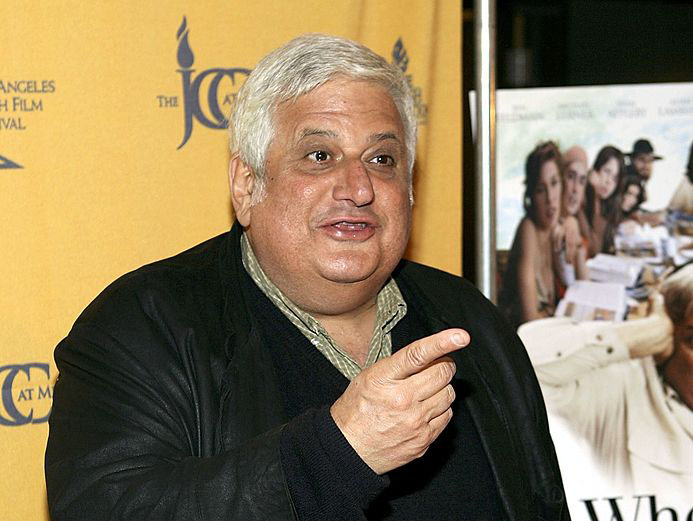Mr. James Traub, 57, is a contributing editor to the New York Times since 1998. Before that, he was a staff writer for The New Yorker. Traub has also written for The New York Review of Books, The Atlantic Monthly, National Review and Foreign Affairs. He is a member of the Council on Foreign Relations. Mr. Traub has kindly agreed to answer some questions on the Iranian nuclear threat and how the West can deal with it.
You write that “The combination of engagement and NPT-compliance has helped Obama persuade Russia, China, and other states to pass tough sanctions in the U.N. Security Council”. But would such a combination help him to convince those countries to up the pressure even more?
Quite possibly not; at the moment, Russia, especially, is pushing back hard against further sanctions. Putin has been more intransigent on the subject than Medvedev, and Putin is now fully back in the saddle. But this need not be fatal in terms of raising the pressure on Tehran; the U.S. has just agreed to act with Britain and Canada to declare Iran an area of “primary money laundering concern,” and to impose new sanctions on the energy and financial sector. But it’s worth noting that Russia reacted quite sharply, declaring the new restrictions “unacceptable.”
Do you not think that the Iranians might be moving forward, among other reasons, because they don’t see in the US administration the determination to stop Iran’s nuclear program at any cost?
We can’t know, but I doubt it. The Iranian response seems to have as much to do with internal politics as with external pressure. The mullahs appear to be trying to outflank Ahmadinejad by taking a more hard-line position. It’s possible, of course, that the fear of an imminent attack would strengthen Ahmadinejad’s hand, but it seems just as likely that it would have the opposite effect. Is there any evidence, for example, that Iran reconsidered its nuclear program during the period when Vice-President Dick Cheney was rattling the American sabre?
Nic Burns told you that Obama “has been very effective in gaining the upper hand in terms of public opinion over [President Mahmoud] Ahmadinejad and the rest of the Iranian leadership.” But aren’t we putting too much emphasis on the PR side when what we have here is a battle that can’t be won by PR?
I didn’t use the word “PR”. Nic Burns and others would argue that Obama’s strategy has succeeded in raising the price Iran must pay for its nuclear fixation—by isolating it internationally, and by doing ever-greater damage to its economy through sanctions. Obama has achieved these admittedly limited successes through diplomacy, of which public relations is just one element.
Is “the strategy working”? How would we know?
The essential irony is that Obama’s strategy is succeeding as diplomacy, but failing to produce the necessary outcome. The IAEA report has only confirmed the widespread belief that Iran is seeking to develop a warhead. Iran’s opacity makes it very hard to know the extent to which Obama’s strategy has slowed the nuclear program. What does and doesn’t work? The IAEA report, which confirms that Iran ended its “structured” program of weapons research in 2003, implies that Bush’s war in Iraq “worked” in an unexpected way to derail that program—but only temporarily. The Stuxnet, which I take to be a clandestine part of the U.S. and Israel’s strategy, certainly slowed the program. The sanctions may be doing the same. Even all put together, that’s not a very satisfying success; it’s just better than the various alternatives.
I had difficulty understanding you bottom line. You write:
So those are our choices: a frustrating, second-best policy of playing by the rules in order to gather and preserve a coalition, gradually raising the pressure, buying time, and putting off the day of reckoning in the hopes that something will change and the Iranians will decide they’d rather not eat grass – or prepare for war. But you can’t threaten a war unless you’re willing to launch one; and an aerial assault on Iran, whether carried out by the United States or Israel, would provoke a spasm of revenge attacks against America, and wreck the country’s standing in much of the Islamic world and above all among the pro-American people of Iran – all to the end of damaging, not destroying, Iran’s nuclear infrastructure. It would purchase delay at an unimaginable cost. And it would guarantee that the Iranians would eat grass to build a bomb.
You’d go for the second best option, but what does it mean: that you’re willing to live with a nuclearized Iran if stopping it means war – or that war should be launched if all other means prove insufficient?
That’s the great question—and not only with regard to Iran. Israel took out Iraq’s and Syria’s budding nuclear capacity at no real cost. North Korea, of course, would be different. We might want to bomb North Korea’s nuclear facilities, but if we did they would unleash their artillery on Seoul. That’s too high a price for the country most immediately threatened by North Korea’s nukes. A different calculus appears to apply with Iran, since an Iranian bomb is more dangerous to Israel than anything Iran would do in response to an attack. At the same time, Israel can only damage Iran’s nuclear capacity, not eliminate it—and by so doing, unite the Iranian people behind the regime and above all behind a restored nuclear program. That may be a price worth paying for Israel; I don’t think it is for the U.S., who would bear the full force of the blowback. For the U.S., containment through sanctions, diplomatic isolation and skullduggery, with the promise of many carrots should Iran change directions, makes more sense. Of course, a President Romney might feel otherwise. Even Obama may decide that the game is worth the candle. He may not know the answer to that question himself. But the question may come down to Israel’s willingness to defy its indispensable friend and protector. Everything, after all, has a price.






















 More news and opinions than at a Shabbat dinner, right in your inbox.
More news and opinions than at a Shabbat dinner, right in your inbox.